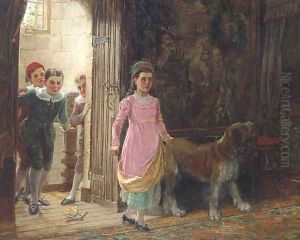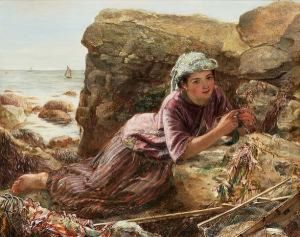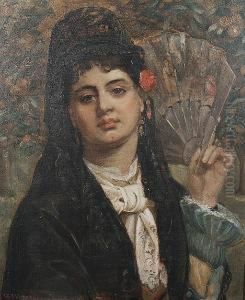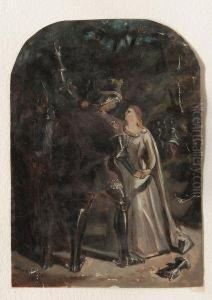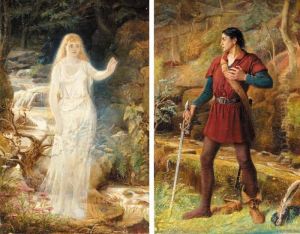Arthur Howes Weigall Paintings
Arthur Edward Pearse Brome Weigall, born in 1880, was a multifaceted figure: an Egyptologist, journalist, and author, whose life and career spanned various fields of interest, reflecting the vibrancy and complexities of the early 20th century. His contributions to Egyptology and his work as a popular author brought ancient Egyptian civilization closer to the general public, at a time when Egyptomania was sweeping through the Western world.
Weigall's journey into Egyptology began at an early age, propelled by a fascination with ancient civilizations. His early career was marked by his work in Egypt, where he succeeded Howard Carter as the Chief Inspector of Antiquities for the Egyptian Government in the early 1900s. In this role, Weigall was responsible for overseeing and protecting Egypt's ancient monuments and sites, a position that placed him at the heart of the field during one of its most exciting periods. His tenure coincided with the discovery of Tutankhamun's tomb by Howard Carter in 1922, an event that captured the world's imagination and brought unprecedented attention to Egyptology.
Despite his significant contributions to the field, Weigall's views on archaeology and conservation were sometimes at odds with those of his peers, including Carter. He was critical of the sensationalism and commercial exploitation surrounding the Tutankhamun discovery, advocating instead for a more scholarly and respectful approach to Egypt's ancient heritage. This stance reflected Weigall's broader concerns about the impact of modernity on historical sites and the importance of preserving the past for future generations.
Beyond his work in Egyptology, Weigall was a prolific writer, penning numerous books on ancient Egyptian history and culture, as well as novels and plays. His ability to communicate complex historical subjects in an accessible and engaging manner helped to popularize Egyptology among lay readers. Weigall's writings not only provided insights into ancient Egypt but also reflected contemporary interests and anxieties, including questions of identity, heritage, and the clash between the ancient and modern worlds.
Arthur Weigall's career was cut short by his untimely death in 1934. Despite his relatively brief life, his legacy endures through his contributions to the field of Egyptology, his efforts to protect Egypt's ancient monuments, and his work as a writer. Weigall's life and work offer a fascinating window into a period of significant change and discovery, both in the field of Egyptology and in the broader cultural landscape of the early 20th century.
